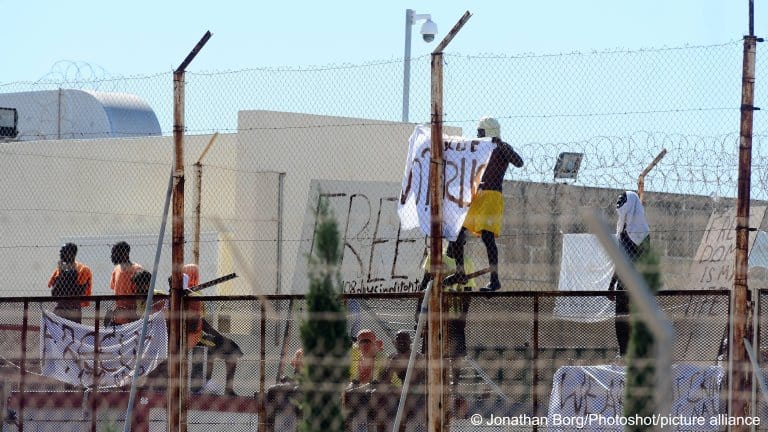
Times of Malta asked the government to react to a decision of the European Court of Human Rights that found that when the authorities detained a 17-year-old boy for 225 days – a stretch of that in isolation and in inhuman conditions – they breached his fundamental human rights. Read his story here.
The government’s reaction was about as brutal as the suffering of their victim. Firstly, they showed no remorse. On the contrary they warn that they have no intention of changing their policies and they will inflict the same inhuman treatment and violate the human rights of anyone in the same situation as that of this case.
This is normal for the Maltese government. It will only respect court decisions against it within the limits of the case itself. But it will not change rules or procedures to avoid repeating the same violations. Its calculation is that most people will not go to the European Court of Human Rights to protect their basic fundamental rights so the basic fundamental rights of most people can be violated with impunity.
We see this, for example, in all the cases of property owners deprived of their property by iron curtain socialist policies. The courts find in favour of applicants and the government obeys the orders to compensate the successful complainants. They tell everyone else in the identical situation they must first go to court and spend a dozen years there only to confirm what everybody knew to begin with: that they’re right.
The fundamental right to the enjoyment of your property is one thing, though. The right not to be arbitrarily detained and kept in a metal container for weeks and months without any form of process is another level of injustice altogether.
The government’s reaction to this case gets worse. They point out that the indefinite detention of the boy was done according to law and that two Maltese courts (in the first instance when the child complained of the treatment he was receiving and the appeals court after he lost his first case) agreed that the detention was according to law.
How’s that an answer?
We have the right to resort to the European Court of Human Rights limitedly after we’ve exhausted all means of redress possible in Malta. The Strasbourg court would never have heard the case if the first two courts in Malta had not turned the applicant down already. If you could dismiss a decision from Strasbourg because the opposite was decided in Malta twice, then you must dismiss every decision from Strasbourg because a decision there is only ever made after the contrary decisions made in Malta.
A government that speaks this way about a decision of the European Court implicitly threatens our right to petition it. We have a hierarchy of courts because we work on a system that when a higher court overturns the decision of a lower court the decision of the lower court is no longer enforceable. If the government seeks to discredit the decision of the higher court because a lower court’s view is opposite to it, they are perverting the entire justice system.
Nor does it matter that the power to imprison the boy for 225 days existed in Maltese law. Just because it’s legal does not mean it’s lawful. A law can be arbitrary. It can be unlawful. And the courts have both the power and the duty to determine whether a law made by a government (or even a parliament) is in contradiction with more fundamental laws such as the European Convention on Human Rights. If they are, then their enforcement is also unlawful.
A minister can in practice write into law all sorts of things by signing a piece of paper and mailing it to the gazette. Nothing stops the minister from signing into law the immediate arrest and indefinite detention of all bald men under 40. The only restraint possible comes after the fact if that law is challenged in parliament or in court. The fact that a minister wrote a law, does not in and of itself prove the law is lawful.
The decision of the European Court of Human Rights that has ruled this form of detention, ostensibly on medical grounds, as unlawful should only lead to one thing: new rules which respect human rights. The government’s response is that it won’t do it.
It will instead, according to Times of Malta’s report, “reply to the Court in due course”. Come again? Is the court providing after sales services these days? There’s nothing to reply now that the highest court has ruled. They can grumble and say they disagree but if they have a shred of respect for the rule of law, even governments must comply with the rulings of the courts.
And when, after a ruling of the court, the government stubbornly retains its unlawful policies and regulations it acts outside the law. It is tyrannical.